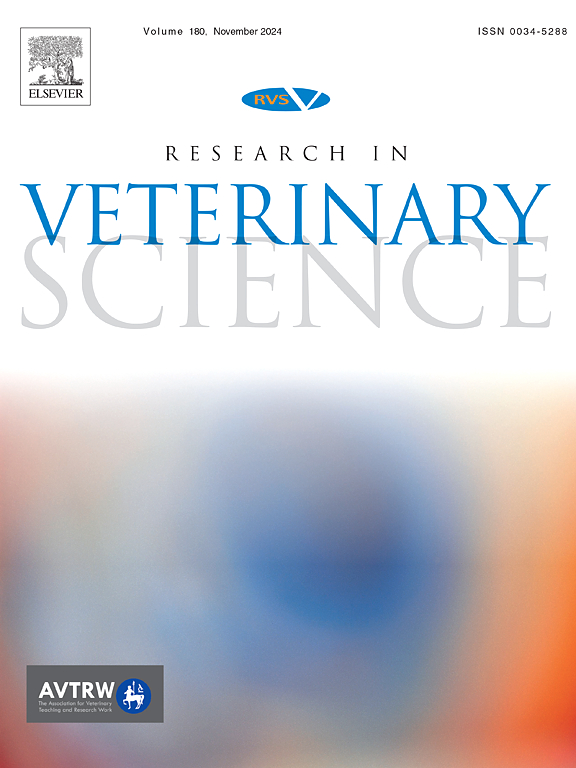Prospects of bovine milk small extracellular vesicles in veterinary medicine
IF 2.2
3区 农林科学
Q1 VETERINARY SCIENCES
引用次数: 0
Abstract
Extracellular vesicles (EV), including exosomes or small EV (sEV) derived from biological fluids, such as milk, have garnered increasing interest in veterinary medicine because of their role in the pathophysiology and understanding of the disease status of the host. Bovine milk serves as a rich source of sEV, containing diverse cargoes of nucleic acids, proteins, and lipids, which play a critical role in intercellular communication and regulation of host status. Although it is more difficult to isolate and purify sEV from bovine milk than from human breast milk, challenges persist in enabling the enrichment and analysis of sEV populations, facilitating the elucidation of their functional roles and prognostic potential in cattle diseases. Moreover, owing to their availability, ease of collection, noninvasive nature, and low cost, bovine milk sEV could be an excellent resource for research in veterinary medicine. Furthermore, the development of sEV-based prognosis is promising for improving veterinary medicine through the early detection of diseases and personalized therapeutic strategies. In this review, we provide a comprehensive overview of bovine milk sEV related to disease monitoring, host physiology, and immune regulation, and highlight their potential applications in advancing veterinary medicine. The prognostic and therapeutic potential of bovine milk sEV could be unlocked by combining knowledge from many fields, creating new opportunities for the development of precise, early prognostic, and focused therapeutic interventions for diseases in veterinary medicine.
求助全文
约1分钟内获得全文
求助全文
来源期刊

Research in veterinary science
农林科学-兽医学
CiteScore
4.40
自引率
4.20%
发文量
312
审稿时长
75 days
期刊介绍:
Research in Veterinary Science is an International multi-disciplinary journal publishing original articles, reviews and short communications of a high scientific and ethical standard in all aspects of veterinary and biomedical research.
The primary aim of the journal is to inform veterinary and biomedical scientists of significant advances in veterinary and related research through prompt publication and dissemination. Secondly, the journal aims to provide a general multi-disciplinary forum for discussion and debate of news and issues concerning veterinary science. Thirdly, to promote the dissemination of knowledge to a broader range of professions, globally.
High quality papers on all species of animals are considered, particularly those considered to be of high scientific importance and originality, and with interdisciplinary interest. The journal encourages papers providing results that have clear implications for understanding disease pathogenesis and for the development of control measures or treatments, as well as those dealing with a comparative biomedical approach, which represents a substantial improvement to animal and human health.
Studies without a robust scientific hypothesis or that are preliminary, or of weak originality, as well as negative results, are not appropriate for the journal. Furthermore, observational approaches, case studies or field reports lacking an advancement in general knowledge do not fall within the scope of the journal.
 求助内容:
求助内容: 应助结果提醒方式:
应助结果提醒方式:


